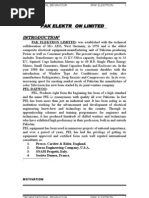Vroom 1964 Expectancy Theory Pdf To Word
- Victor Vroom Expectancy Theory 1964
- Vroom 1964 Expectancy Theory Pdf To Word Converter
- Vroom's Model Of Expectancy Theory Definition

Expectancy theory of motivation (Vroom, 1964) represents such a cogni. The first assumption is that behavior is rooted in the belief system of a person. With respect to expectancy theory, this involves beliefs about being able to attain various. The list of words and indicate which words were spelled incorrectly.
Gemini tv mogalirekulu serial online. Munna plots to attack DGP RK but later comes to know that he is his father. And they get married. The story has a lot of twists, drama and touches upon social responsibilities too. Story ends with the two families of RK & Selva uniting and also they comes to know that Dharma is alive. Munna unable to face his father, hides his identity and changes his name to ‘Mahidhar Naidu’ and starts a health service called AHS to serve rural people and comes back to RK after protecting RK from a bomb blast.
- The expectancy theory was proposed by Victor Vroom of Yale School of Management in 1964. Vroom stresses and focuses on outcomes, and not on needs unlike Maslow and Herzberg. The theory states that the intensity of a tendency to perform in a particular manner is dependent on the intensity of an expectation that the performance will be followed by a definite outcome and on the appeal of the.
- Vroom's Expectancy Theory Victor H. Vroom, Professor, Yale University. As an international expert on leadership and decision making, the Expectancy Theory of Motivation was suggested by Victor H. He was named to the original board of officers of the Yale School of Management when it was founded in 1976.
Victor Vroom Expectancy Theory 1964

Vroom 1964 Expectancy Theory Pdf To Word Converter

Vroom's Model Of Expectancy Theory Definition
- Arvey, R.: 1972, 'Task Performance as a Function of Perceived Effort-Performance and Performance-Reward Contingencies', Organizational Behavior and Human Performance8, 423–433.Google Scholar
- Badaracco, J. L. and A. P. Webb: 1995, 'Business Ethics: A View from the Trenches', California Management Review37(2), 8–28.Google Scholar
- Baier, A.: 1985, 'Doing Without Moral Theory?', in A. Baier (ed.), Postures of the Mind: Essays on Mind and Morals (University of Minnesota Press, Minneapolis), pp. 228–245.Google Scholar
- Bayles, M. (ed.): 1968, Contemporary Utilitarianism (Anchor Books, New York).Google Scholar
- Berenbeim, R. E.: 1992, Corporate Ethics Practices (The Conference Board, Report No. 986, New York).Google Scholar
- Blodgett, T. B.: 1968, 'Showdown on “Business Bluffing” (Special Report)', Harvard Business Review46(3), 162–170.Google Scholar
- Brayfield, A. H. and W. H. Crockett: 1955, 'Employee Attitudes and Employee Performance', Psychology Bulletin52, 396–424.Google Scholar
- Brothers, T. (ed.): 1991, Corporate Ethics: Developing New Standards of Accountability (The Conference Board, Report No. 980, New York).Google Scholar
- Carr, A. Z.: 1968, 'Is Business Bluffing Ethical?', Harvard Business Review46(1), 143–153.Google Scholar
- Fromson, B.: 1990, 'Did Drexel Get What it Deserved?', Fortune (March 12), 81–88.Google Scholar
- Georgopoulos, B. S., G. M. Mahoney and N. W. Jones: 1957, 'A Path-Goal Approach to Productivity', Journal of Applied Psychology41, 345–353.Google Scholar
- Harrell, A. M. and M. J. Stahl: 1984, 'Modeling Managers' Effort-Level Decisions for a Within-Persons Examination of Expectancy Theory in a Budget Setting', Decision Sciences15, 52–73.Google Scholar
- Herzberg, F., G. Mausner, R. O. Peterson and D. R. Capwell: 1957, Job Attitudes: Review of Research and Opinion (Psychological Service of Pittsburgh, Pittsburgh).Google Scholar
- Hope, J. W. and L. E. Pate: 1988, 'A Cognitive-Expectancy Analysis of Compliance Decisions', Human Relations41, 739–751.Google Scholar
- Jorgenson, D. O., M. D. Dunnette and R. D. Pritchard: 1973, 'Effects of the Manipulation of a Performance-Reward Contingency on Behavior in a Simulated Work Setting', Journal of Applied Psychology57, 271–280.Google Scholar
- Kant, I.: 1785, Grounding for the Metaphysics of Morals, tr. James Ellington (Hackett Publishing Co., Indianapolis, 1981).Google Scholar
- Klein, H. J.: 1991, 'Further Evidence on the Relationship between Goal Setting and Expectancy Theories', Organizational Behavior and Human Decision Processes49, 230–257.Google Scholar
- Lawler, E. E. and L. W. Porter: 1967, 'Antecedent Attitudes of Effective Managerial Performance', Organizational Behavior and Human Performance2, 122–142.Google Scholar
- Lawler, E. E.: 1970, 'Job Attitudes and Employee Motivation: Theory, Research, and Practice', Personnel Psychology23, 223–237.Google Scholar
- Lewin, K.: 1951, 'Behavior and Development as a Function of the Total Situation', in D. Cartwright (ed.), Field Theory in Social Sciences: Selected Theoretical Papers (Harper & Row, New York), pp. 238–303.Google Scholar
- Maremont, M.: 1995, 'Blind Ambition', Business Week (October 23), 79–92.Google Scholar
- Nadler, D. and E. E. Lawler: 1977, 'Motivation: A Diagnostic Approach', in J. R. Hackman, E. E. Lawler and L. W. Porter (eds.), Perspectives on Behavior in Organizations (McGraw-Hill, Inc., New York), pp. 26–36.Google Scholar
- Nelson, K. A.: 1991, 'The Game: Integrating Corporate Standards Worldwide', in T. Brothers (ed.), Corporate Ethics: Developing New Standards of Accountability (The Conference Board, Report No. 980, New York), pp. 27–28.Google Scholar
- Pritchard, R. D. and M. S. Sanders: 1973, 'The Influence of Valence, Instrumentality, and Expectancy on Effort and Performance', Journal of Applied Psychology57, 55–60.Google Scholar
- Schuh, A. J.: 1967, 'The Predictability of Employee Tenure: A Review of the Literature', Personnel Psychology20, 133–152.Google Scholar
- Snead, K. C. and A. M. Harrell: 1994, 'An Application of Expectancy Theory to Explain a Manager' Intention to Use a Decision Support System', Decision Sciences25, 499–513.Google Scholar
- Spagnola, S. S: 1992, 'Human Resources Programs for New and Old Employees', in T. Brothers (ed.), Corporate Ethics: Developing New Standards of Accountability (The Conference Board, Report No. 980, New York), pp. 19–20.Google Scholar
- Stocker, M.: 1973, 'Act and Agent Evaluations', Review of Metaphysics27, 42–61.Google Scholar
- Stocker, M.: 1976, 'The Schizophrenia of Modern Ethical Theories', Journal of Philosophy3, 453–466.Google Scholar
- Vroom, V.: 1964, Work and Motivation (John Wiley & Sons, Inc., New York).Google Scholar